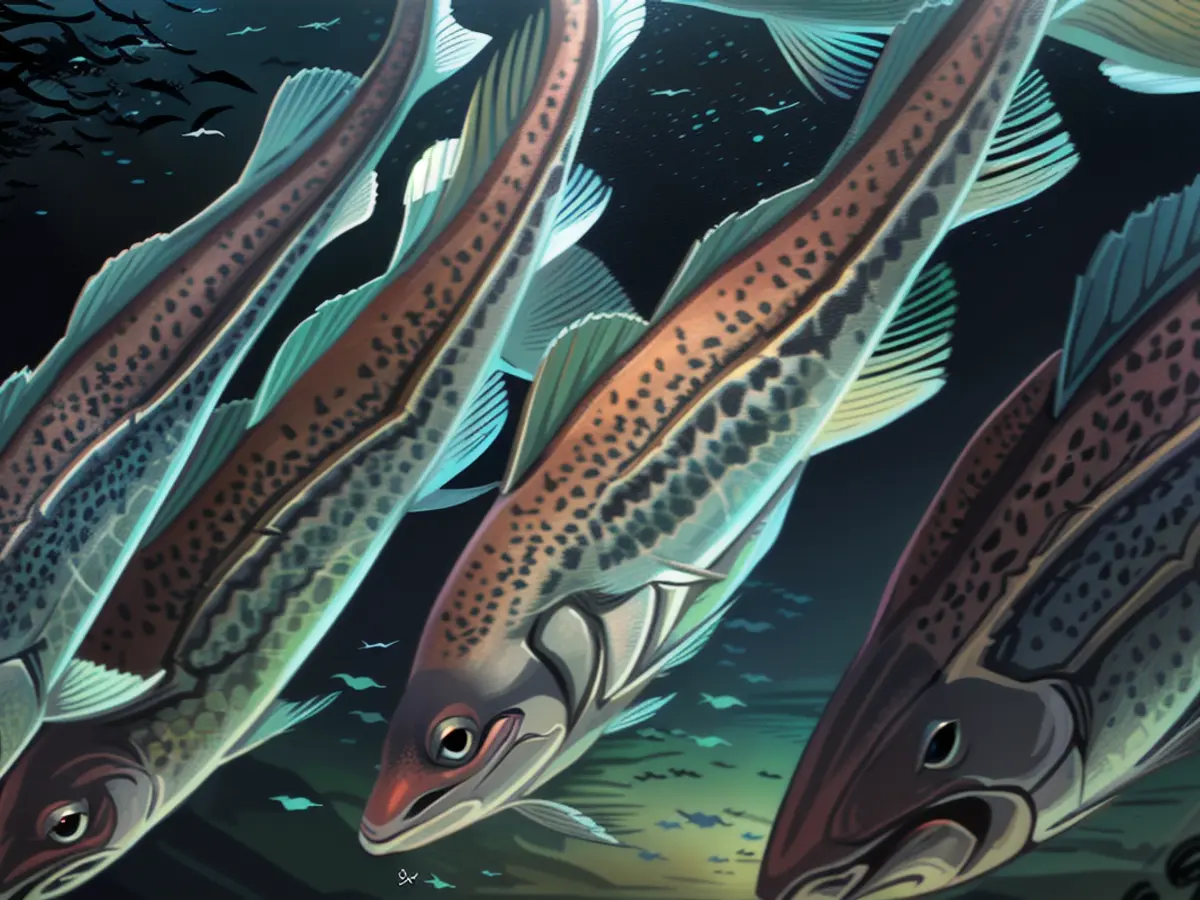Casting Lines for a Catch: The Art of Fishing. - For 2025, Baltic Sea recommendations suggest catching more herring and less cod.
Following a three-year halt to fishing activities, the East Sea fisheries are expected to remain stressed in the upcoming year. According to recommendations from the International Council for the Exploration of the Sea (ICES), the cod populations in the western region along with the herring show no signs of improvement, as mentioned by the German Fisheries Association in Hamburg on Monday.
Despite the promising news for the herring in the central Baltic Sea, where the allowed catch quota can be doubled, the situation for eastern Baltic Sea's cod remains tough. Although the reproduction rate of cod appears to be improving and stocks have slightly advanced, the total mass of the fish is yet to reach the recommended safety benchmark. Consequently, a complete ban on fishing cod continues.
The western Baltic's cod still has a recommended catch limit of 24 tons. In regards to sprat's reproduction, it's been a struggle over the past few years, with the last three spawning seasons among the weakest ever recorded. Therefore, ICES suggests cutting fishing quotas by 33% for 2025.
There's better news for flounders in the Baltic Sea, as ICES has advised a whopping 178% increase in total catch for plaice. However, considering the risk of catching cod during flatfish fishing, it seems this increase may not take place, based on recent indicators.
A representative from the association observed, "It appears that a major shift has been happening in the Baltic Sea over the past two decades, substantially altering the productivity and yield potential of this unique ecosystem due to its specific hydrographic conditions." After the three-year fishing hiatus, it seems fishing activity no longer presents as significant an impact on the development of the fish populations.
Read also:
In Mecklenburg-Western Pomerania, fishermen might need to adjust their strategies due to the increased herring catch recommendation in the Baltic Sea. Despite Hamburg's German Fisheries Association's hope for a cod population recovery, fishing for this species in Schleswig-Holstein continues to be restricted, as the total mass has yet to meet the recommended safety benchmark.








